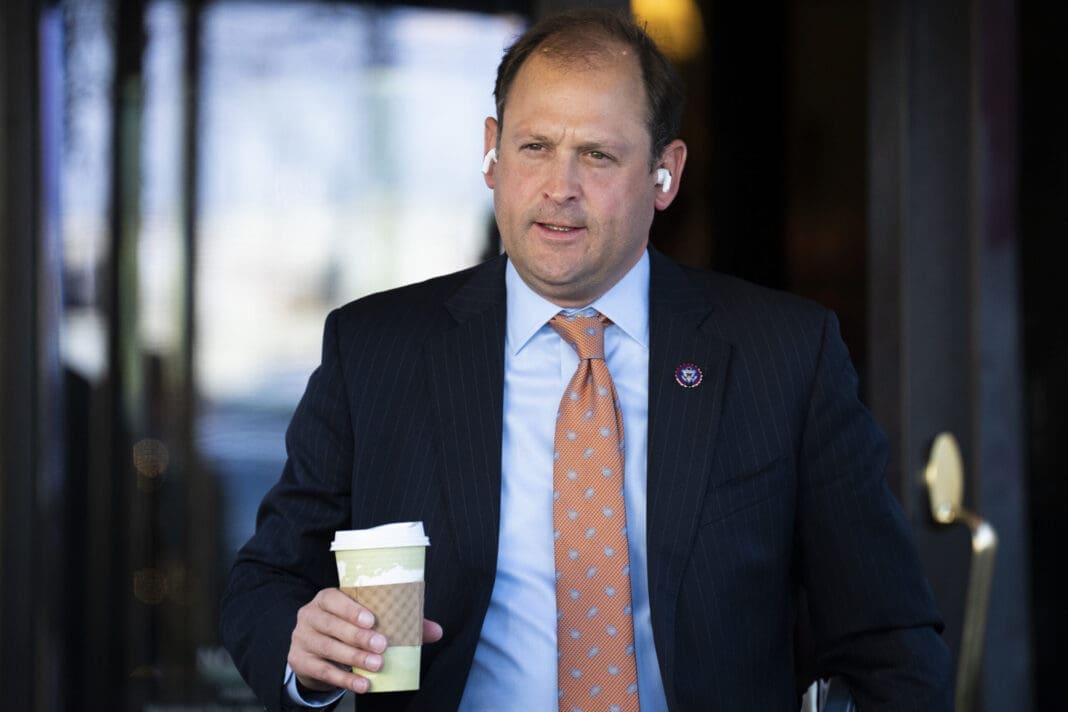House Republicans vote for repeal of climate-related investment regulations
Republicans are trying to overturn a Labor Department regulation that allows retirement funds to consider environmental, social, and governance behaviors of the companies in which they invest.

Congressional Republicans are attempting to overturn a Labor Department rule that allows retirement funds to consider factors such as climate change and social responsibility when assessing the long-term value of the companies in which they invest.
On Tuesday, the GOP-controlled House of Representatives voted 216-204 for a resolution of “congressional disapproval” of the Prudence and Loyalty in Selecting Plan Investments and Exercising Shareholder Rights rule, finalized in December. Maine Rep.’ Jared Golden was the only House Democrat to vote in favor, and no Republicans voted against it.
On Wednesday, the Senate is expected to vote on the measure, which would require only a simple majority to pass.
The regulation allows managers of retirement funds to consider a business’ “climate-related financial risk” and other long-term factors when determining where to put investors’ funds.
It states that the law governing such plans “does not preclude fiduciaries from making investment decisions that reflect environmental, social, or governance (”ESG”) considerations, and choosing economically targeted investments (”ETIs”) selected in part for benefits in addition to the impact those considerations could have on investment return,” as long it is making investments likely to have a good financial return.
Virginia Rep. Bobby Scott, the top Democratic member on the House Committee on Education and the Workforce, spoke against the bill in a House floor speech [43:30] on Tuesday, arguing it would “nullify a popular and sensible rule issued by the Biden-Harris administration last year.”
“Workers should be able to invest their retirement in a way that reflects their values, such as combating climate change without sacrificing investment returns,” Scott argued, adding:
Be clear: This rule is not an ESG mandate. Additionally, the rule does not change the fiduciary standard to which professionals who make investment decisions for retirement plans are bound. They must still prioritize the interests of retirement plan participants and cannot sacrifice investment returns to pursue ESG goals. So let’s be clear: Consideration of ESG factors is not at odds with making a profit. In fact, workers’ profit is still central, but if a company has negative externalities, such as carbon-intensive business practices, vulnerability to sea-level rise, high liability risks, or a record of mistreating workers who may go on strike, its stock could suffer in the long term. Workers often contribute to their retirement for decades before drawing down on their savings, so it makes sense that retirement plan beneficiaries must consider the long-term time horizon when making investment decisions.
Republican Kentucky Rep. Andy Barr, who authored the resolution on repealing the rule, claimed in a Tuesday press release, “Congress must dig in and prevent the Biden Administration from greenlighting any attempt to elevate a political agenda ahead of delivering maximum financial security so that seniors can live comfortably in retirement.”
Senate Minority Leader Mitch McConnell said Tuesday in a floor speech: “This Administration wants to let the fund managers prioritize extraneous factors — from companies’ carbon footprints to various H.R. policies — when deciding where to invest hardworking Americans’ savings. … Democrats want to let money managers make these unrelated ideological goals a higher priority than getting their clients, ordinary American workers, the best returns for their own retirements.”
President Joe Biden’s executive office said in a statement of administration policy released on Monday: “The 2022 Biden-Harris Administration rule makes clear that ERISA fiduciaries can consider factors such as corporate accountability and transparency, climate, and liability risks if they find them relevant to the analysis of an investment’s risk and return, in the same way that they would prudently consider other relevant factors. … If the President were presented with H.J. Res. 30, he would veto it.”
Referencing a rule issued by former President Donald Trump’s administration in 2020 that barred any consideration of ESG factors in retirement investment decisions, the executive office statement warned, “If DOL were to revert to the 2020 rule, the federal government would be interfering with the market in a manner that stands in the way of retirement plan fiduciaries’ ability to protect these hard-earned retirement savings and pensions and unnecessarily limit the options available to retirement plan participants and investors.”
Any attempt to override a veto would require two-thirds supermajorities in both the House and the Senate. With nearly universal Democratic opposition, that is unlikely to happen.
Published with permission of The American Independent Foundation.
Recommended

Florida abortion ban puts GOP Rep. Anna Paulina Luna’s anti-choice views in spotlight
Luna supports abortions bans with no exceptions for rape
By Jesse Valentine - May 07, 2024
Republican Caroleene Dobson wants Alabama abortion ban to go nationwide
Dobson is the Republican candidate in what will be one of the most-watched House races of 2024.
By Jesse Valentine - April 30, 2024
Direct mailers distort California Democrat Will Rollins’ record
Rollins, a former federal prosecutor, is challenging incumbent GOP Rep. Ken Calvert.
By Jesse Valentine - April 25, 2024





































































